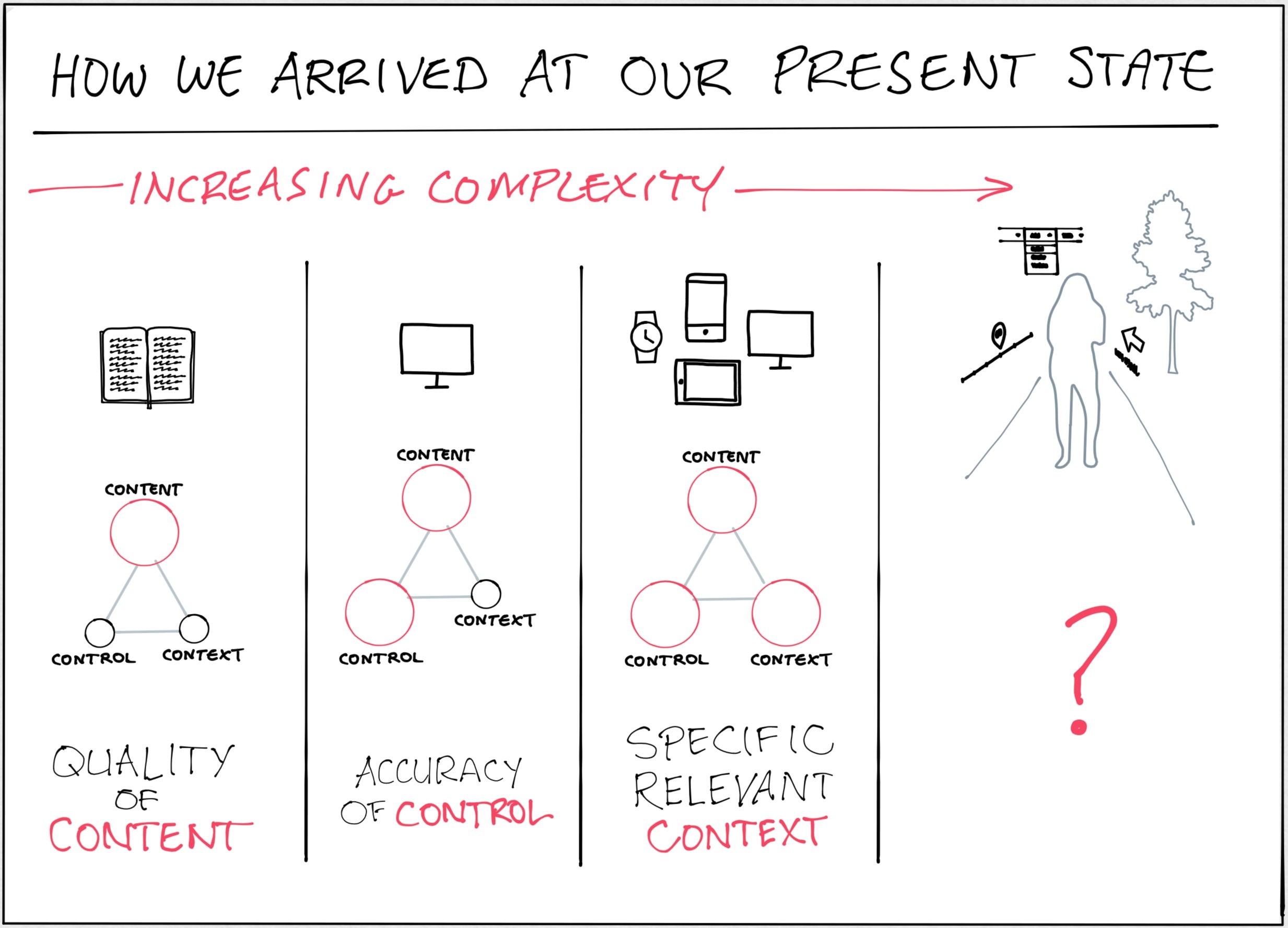There is confidence in context.
The lightning-fast changes in our culture and the ways people use technology are creating a crisis in confidence for business leaders, data scientists and product owners. Knowing what to do next is easier than we might think.
SO WHAT HAVE WE LEARNED SINCE 2016?
Broadly speaking, humans still—and will for a long time—need 3 basic things from us to help them accomplish their jobs to be done.
1. Do we have a relevant understanding of their context?
2. Have we given them meaningful and high quality content?
3. Have we enabled specific and accurate control?
INCREASED COMPLEXITY IS NOT A BAD THING.
Through the use of more sophisticated, adaptive UI and the power of AI, we are getting even better at understanding the complexity of human context and how it can be known. Gone are the days of “target user profiles”. Who we are and what we need to do at any given moment is constantly shifting and seamless. The ability of our products to be meaningful and useful must also shift as continuously and seamlessly as that context.
WE MUST PRESENT MULTIPLE SOURCES IN REAL TIME
As researchers, product owners, designers and developers, we must learn to use the tools that augment our ability to move quickly and be more sophisticated. These tools range from AI and machine learning for better data, insight, and adaptive UI, to more integrated spatial design and collaboration environments like GitLab and The Wild.
Makers will always have strong feelings about the success of what they make. That desire to create something magical is a noble ideal but it won't get us all the way to our best work. Discovery, evaluation and validation can be done quickly and with less money than many people realize. In some cases, we’ve been able to prove concepts to executive-level confidence in 1-2 weeks. I’m so confident in the approach that I often give new clients an exploratory work session without fees because I know the rest of the design process will be confident, efficient and effective.
WORKING TO PROVIDE CEO CONFIDENCE
Fine Counsel uses a spatial design and research service that allows organizations and their leadership to gain first-hand knowledge of context—without the ballooning costs of travel and security and compromise of user privacy and IP.





